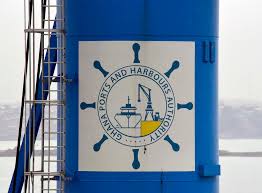The Ghana Ports and Harbours Authority (GPHA), says it was compelled to implement the revised tariff due to the current global economic challenges.
These include inflation and currency depreciation which GPHA says have increased its operational cost.
In a statement issued Thursday in reaction to concerns raised by the Ghana Union of Traders Association (GUTA), the GPHA also explained that as in all other increments in the past, “the rates of increment in this year's tariff adjustment were informed by the outcome of a comparative port tariffs studies we conducted in our neighbouring Ports of Lome and Abidjan, to ensure that at every given time, our ports will remain competitive in terms of price and quality of services.”
Consequently, it said “…even with the increment of 1st August 2023, overall, our port tariffs remain competitive compared to our neighbours.”
GUTA president, Dr. Joseph Obeng had protested the upwardly reviewed tariffs, saying it was “unfortunate and unacceptable” because it will overburden businesses. He therefore called for its suspension and a stakeholder engagement to ensure all outstanding issues are exhausted.
But the GPHA says its operations, like any other business, is affected by increases in the price of fuel, water, electricity, machinery and equipment among others, and “While we understand that tariff increment may have short term effect on businesses, it is essential to maintain a delicate balance between cost recovery and providing quality services.
The statement said the “GPHA is equally concerned about the low traffic volumes, but that is no reason for the Authority to operate at a loss,” after investing millions of dollars in upgrading port infrastructure”, and that a well maintained and efficient port system will in the long run contribute to a reduction in operational costs for businesses, enhance productivity and facilitate smoother trade operations.
Our investigation revealed that the decline in cargo volumes cannot be attributed to GPHA's service charges. GPHA's charges as a component of the total cost of cargo clearance in the port is about 6%. We are currently conducting a study on the individual contributors and their share to total cost of cargo clearance in our ports, so that together, we can engage and find possible solutions.
Below is the full statement issued by the GPHA.



Latest Stories
-
Trinity Oil MD Gabriel Kumi elected Board Chairman of Chamber of Oil Marketing Companies
27 minutes -
ORAL campaign key to NDC’s election victory – North America Dema Naa
46 minutes -
US Supreme Court to hear TikTok challenge to potential ban
51 minutes -
Amazon faces US strike threat ahead of Christmas
1 hour -
Jaguar Land Rover electric car whistleblower sacked
2 hours -
US makes third interest rate cut despite inflation risk
2 hours -
Fish processors call for intervention against illegal trawling activities
2 hours -
Ghana will take time to recover – Akorfa Edjeani
2 hours -
Boakye Agyarko urges reforms to revitalise NPP after election defeat
3 hours -
Finance Minister skips mini-budget presentation for third time
3 hours -
‘ORAL’ team to work gratis – Ablakwa
3 hours -
Affirmative Action Coalition condemns lack of gender quotas in Transition, anti-corruption teams
3 hours -
December 7 election was a battle for the ‘soul of Ghana’ against NPP – Fifi Kwetey
3 hours -
Social media buzzing ahead of Black Sherif’s ‘Zaama Disco’ on December 21
3 hours -
Afenyo-Markin still suffering from the massive defeat – Fifi Kwetey
3 hours

